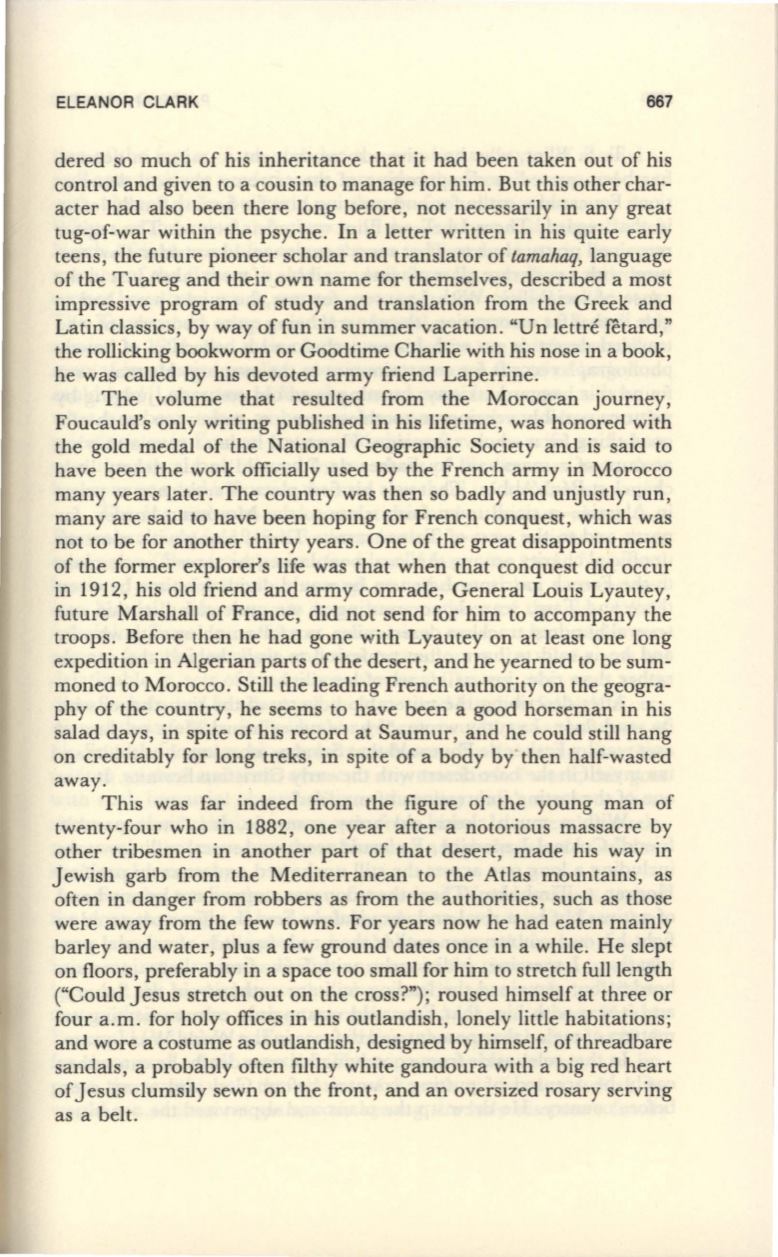
ELEANOR CLARK
667
dered so much of his inheritance that it had been taken out of his
control and given to a cousin to manage for him. But this other char–
acter had also been there long before, not necessarily in any great
tug-of-war within the psyche. In a letter written in his quite early
teens , the future pioneer scholar and translator of
tamahaq,
language
of the Tuareg and their own name for themselves, described a most
impressive program of study and translation from the Greek and
Latin classics, by way of fun in summer vacation. "Un lettre letard,"
the rollicking bookworm or Goodtime Charlie with his nose in a book,
he was called by his devoted army friend Laperrine.
The volume that resulted from the Moroccan journey,
Foucauld's only writing published in his lifetime, was honored with
the gold medal of the National Geographic Society and is said to
have been the work officially used by the French army in Morocco
many years later. The country was then so badly and unjustly run,
many are said to have been hoping for French conquest, which was
not to be for another thirty years. One of the great disappointments
of the former explorer's life was that when that conquest did occur
in 1912, his old friend and army comrade, General Louis Lyautey,
future Marshall of France, did not send for him to accompany the
troops. Before then he had gone with Lyautey on at least one long
expedition in Algerian parts of the desert, and he yearned to be sum–
moned to Morocco . Still the leading French authority on the geogra–
phy of the country, he seems to have been a good horseman in his
salad days, in spite of his record at Saumur, and he could still hang
on creditably for long treks, in spite of a body by then half-wasted
away.
This was far indeed from the figure of the young man of
twenty-four who in 1882, one year after a notorious massacre by
other tribesmen in another part of that desert, made his way in
Jewish garb from the Mediterranean to the Atlas mountains, as
often in danger from robbers as from the authorities, such as those
were away from the few towns. For years now he had eaten mainly
barley and water, plus a few ground dates once in a while . He slept
on floors, preferably in a space too small for him to stretch full length
("Could Jesus stretch out on the cross?"); roused himself at three or
four a.m. for holy offices in his outlandish, lonely little habitations;
and wore a costume as outlandish, designed by himself, of threadbare
sandals, a probably often filthy white gandoura with a big red heart
ofJesus clumsily sewn on the front, and an oversized rosary serving
as a belt.


